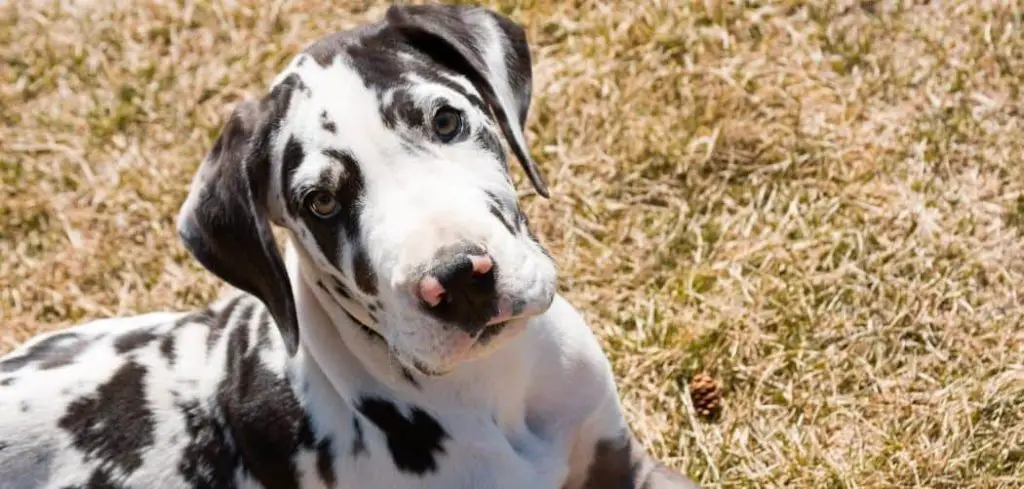When your dog is pooping clear liquid and refusing food, it’s a serious red flag for their health.
We outline the common causes of a dog pooping clear liquid and not eating, what you can do at home, and when to seek veterinary help.
Dog Pooping Clear Liquid and Not Eating — Why It Happens
This combination of symptoms typically points to gastrointestinal inflammation, infection, or organ dysfunction. Clear liquid in stool often means mucus is being expelled, a sign of irritation in the colon.
When this happens alongside appetite loss, it could suggest problems such as colitis, intestinal infections, pancreatitis, or even more systemic issues like kidney failure or poisoning. Some causes are mild, but others require urgent care.

Common Causes of Dog Pooping Clear Liquid and Not Eating
Colitis
Colitis is inflammation of the large intestine, often causing your dog to pass mucus or clear liquid with their stool.
This condition can be triggered by dietary indiscretion, parasites, stress, or bacterial infections.
Affected dogs may strain to poop, have frequent small bowel movements, or show blood and mucus in their stool.
Loss of appetite is common due to abdominal discomfort, nausea, and the underlying stress on their digestive system.
Intestinal Parasites
Hookworms, whipworms, and giardia are all parasites that can lead to clear, slimy poop.
They irritate the intestines and often cause inflammation, leading to mucous discharge. Puppies are especially vulnerable.
A dog dealing with a parasite infestation may stop eating because they feel nauseous or bloated.
You might also notice a dull coat, weight loss, or general lethargy along with the change in stool.
Gastroenteritis
Gastroenteritis refers to inflammation of the stomach and intestines, often from viruses, bacteria, or toxins.
It causes vomiting, diarrhea (sometimes with mucus or clear liquid), and a loss of appetite.
Dogs may also be weak, dehydrated, or display abdominal pain.
Even a simple dietary mistake, like getting into the trash, can cause a flare-up.
Pancreatitis
Pancreatitis is an inflammation of the pancreas that disrupts digestion.
It often presents with diarrhea that contains mucus, vomiting, belly pain, and refusal to eat.
Fatty meals are a common trigger, and small breeds are particularly at risk.
Left untreated, pancreatitis can lead to serious complications, including organ failure.
Kidney Disease
When the kidneys fail to filter toxins properly, waste builds up and irritates the digestive tract.
Dogs with kidney disease often feel nauseous and may have changes in bowel habits—including mucusy or liquid stools.
They typically drink more water, eat less, and may vomit or seem disoriented.
Chronic kidney disease develops slowly, while acute cases can worsen in hours.
Ingestion of Toxins or Foreign Objects
Dogs that swallow toxic substances or inedible items (like toys, bones, or human medications) may experience bowel inflammation and appetite loss.
The body may react by producing excess mucus in the stool as the intestines become irritated.
Clear liquid stools, vomiting, drooling, and refusal to eat are common warning signs.
This is a medical emergency and needs immediate attention.
What to Do If Your Dog Is Pooping Clear Liquid and Not Eating
First, remove food for a few hours (but not water) to give your dog’s stomach time to rest.
If your dog is stable and not vomiting, you can try offering a bland diet of boiled chicken and rice after 12–24 hours.
Monitor their hydration by checking for sticky gums or skin that doesn’t bounce back when gently pulled—both signs of dehydration.
Keep them comfortable and calm, as stress can worsen digestive upset.
Avoid giving over-the-counter meds unless directed by a vet, as some human treatments can be toxic to dogs.
When to Call or Visit Your Vet
Contact your vet immediately if:
Your dog is very lethargic or refusing water
There is blood in the stool or vomit
They are repeatedly vomiting or having explosive diarrhea
You suspect they ate something toxic
Symptoms last longer than 24 hours
Prompt diagnosis can prevent serious complications like dehydration, sepsis, or organ damage.
Don’t delay care—especially for puppies, seniors, or dogs with chronic conditions.
Read more: Dog Not Eating and Drinking a Lot of Water (Is it serious or just dehydration?)
Key Takeaway
Clear liquid in your dog’s poop, paired with a loss of appetite, is more than a minor upset.
It signals that something deeper—often involving intestinal inflammation or organ dysfunction—is going on.
Support your dog with gentle care, and don’t hesitate to get a professional opinion.
Acting early protects their comfort, hydration, and long-term health.
